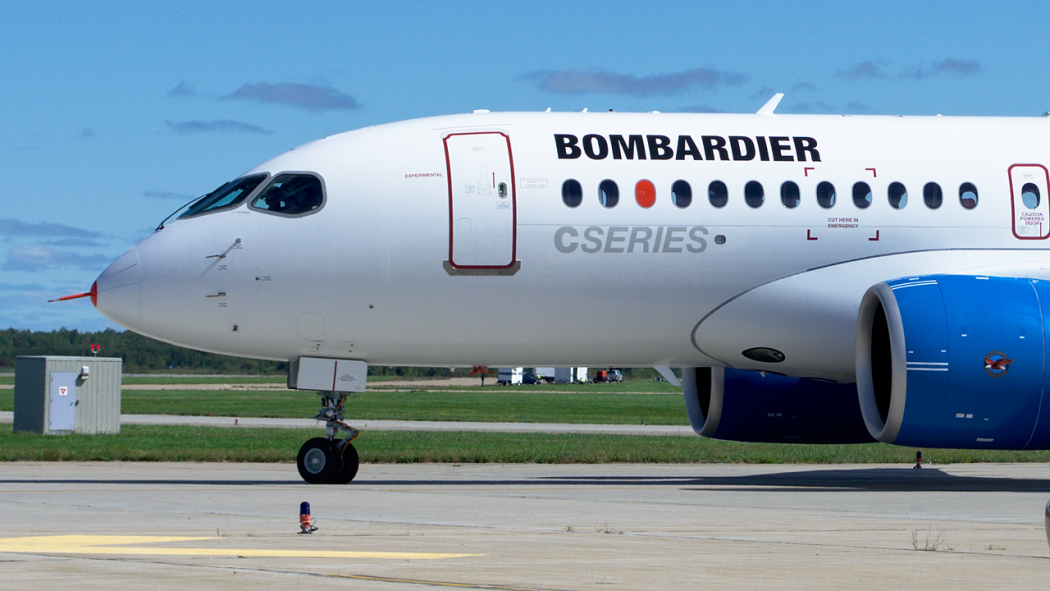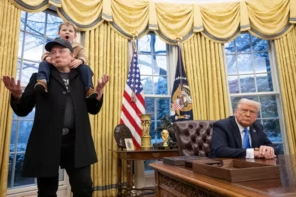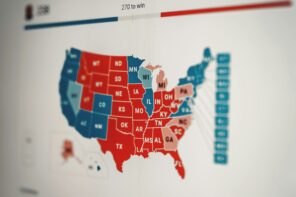On Oct. 6, the International Trade Commission (ITC) of the U.S. Department of Commerce determined in a preliminary anti-dumping ruling to impose a 79.82-percent tariff on the C-series jets of Canadian aerospace company Bombardier. The total tariff will be nearly 300-percent, including a previous subsidies ruling. These two decisions are results of American manufacturer Boeing’s accusation that the Canadian government unfairly subsidized the C-series program, allowing Bombardier to sell each airliner for $19 million, a figure that Bombardier contested, in light of its roughly $80 million listing price.
Boeing had already filed a complaint against Bombardier back in April 2017, a year after Delta Airlines placed an order for 125 C-series jets from the Canadian company. The American corporation alleges that this contract undercuts the sales performance of its 737 airliners. Boeing suggested as well that the biggest factor in Delta’s purchase is the unduly low prices offered by Bombardier, though Delta insists that it bought the fuel-efficient C-series because Boeing does not offer any comparable products. Edward Bastian, CEO of Delta, called the ITC ruling “absurd” and said that with these new tariffs, the Bombardier jets are now entirely unaffordable.
Edward Bastian, CEO of Delta, called the ITC ruling “absurd” and said that with these new tariffs, the Bombardier jets are now entirely unaffordable
However, Boeing has proved in its official complaint to the Department of Commerce that the governments of Canada and Quebec have injected large sums of investments and additional subsidies to support Bombardier’s C-series program. To date, the Quebec government has contributed a total of $3.25 billion through Investissement Quebec – the government’s funding division – and the Caisse de dépôt et placement du Québec (CDPQ) pension fund, while the Canadian and UK government subsidized $350 million and $188 million respectively.
Bombardier’s need for financial aid derives from its current debt of $9 billion, a factor in the company’s consideration of bankruptcy in 2015. The company lost a merger deal with German rail company Siemens AG on the day of the ITC ruling, and its shares plummeted 14% at the TSX open the day after. Bombardier is unmistakably in no shape to fund its to manufacture the C-series, and desperately needs the Quebecois and Canadian governments to act as its saving graces.
Regardless, the Quebecois and Canadian governments stand united in defense of Bombardier. Quebec Premier Philippe Couillard lambasted the ruling by calling on Prime Minister Trudeau to ensure that “not a bolt, not a part, not a plane from Boeing [enters] Canada until this conflict is resolved in a satisfactory way,” and labeled the trade dispute as a war – one that Quebec “shall win.”
Similarly, Trudeau threatened to withdraw Canada’s purchase of 18 Super Hornet fighters from Boeing and affirmed that the government “won’t do business with a company that’s busy trying to sue [Canada] and put [Canadian] aerospace workers out of business.” British Prime Minister Theresa May was “bitterly disappointed” and worried about the employment of the 4,000 workers of the Bombardier plant in East Belfast, Northern Ireland. Nevertheless, both leaders have implicit political intentions with their statements: Trudeau’s Liberals need to win extra seats in Quebec during the 2019 parliamentary election, and May’s minority government is currently kept in power by a few legislators from Northern Ireland.
In response to Trudeau and May, U.S. Secretary of Commerce Wilbur Ross said, “The US values its relationships with Canada, but even our closest allies must play by the rules. The subsidization of goods by foreign governments is something that the Trump Administration takes very seriously, and we will continue to evaluate and verify the accuracy of this preliminary determination.”
The Bombardier program could generate $30 billion USD and 22,700 jobs in 19 states, but will only do so if the Department of Commerce removes the tariffs
It was not a surprise to Bombardier and Canadian officials that Secretary Ross – a billionaire and a staunch supporter of President Trump’s “America First” policy – would take measures to subdue any foreign companies that put its American counterparts and their employees at a potential disadvantage. Yet, Ross is inflicting damages on some Americans themselves, as much of the C-Series content comes from American suppliers, including Pratt & Whitney, who manufacture the airplane engines. The Bombardier program could generate $30 billion USD and 22,700 jobs in 19 states, but will only do so if the Department of Commerce removes the tariffs.
Regarding Prime Minister Trudeau’s statement, Boeing replied specifically that it is not “suing or attacking Canada.” The company spokesman Dan Curran asserted that “this is a commercial dispute with Bombardier, which has sold its C-Series airplane in the United States at absurdly low prices, made possible by a major injection of public funds, in violation of U.S. and global trade laws.” Moreover, Curran identified the trade dispute as a “classic case of dumping”.
Unexpectedly, Brazil agreed with Boeing, as the subsidies Bombardier received undermined the Brazilian aerospace company, Embraer SA, as well. The Brazilian government took a step further by requesting the World Trade Organization (WTO) to open an investigation into the C-Series jet program, to which the WTO agreed on Sept. 29. Embraer labeled the subsidies in question as an “unsustainable practice that distorts the entire global market, harming competitors at the expense of Canadian taxpayers,” and the WTO will soon name three members on the ruling panel for this issue.
In response to Embraer’s claims, Bombardier was confident that the government-funded programs comply with WTO regulations. The company released another statement with regards to Boeing, saying, “it is pure hypocrisy for Boeing to say that the C-Series launch pricing is a ‘violation of global trade law’ when Boeing does the same for its new aircraft.” Boeing did receive $457 million in federal grants between 2000 and 2014 and $64 billion in federal loans and loan guarantees from the U.S. government, who seems to be just as generous as its Canadian counterpart in the aerospace industry. Perhaps the issue is not as cut-and-dried as Boeing would like consumers to believe.
The conflict between Boeing and Bombardier is far from over, and not all of the details have been finalised. Be sure to watch out for the final ITC ruling, due in 2018.
The views and statements expressed in this article are the author’s own and do not necessarily represent those of The Bull & Bear.








